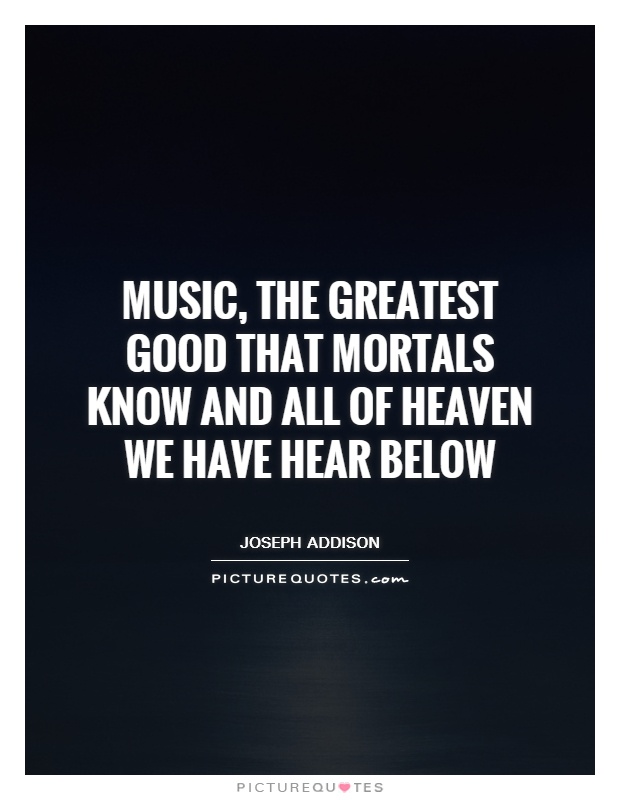Music, the greatest good that mortals know and all of heaven we have hear below

Music, the greatest good that mortals know and all of heaven we have hear below
Joseph Addison, a prominent English essayist, poet, and playwright of the 18th century, once famously said, "Music, the greatest good that mortals know and all of heaven we have hear below." This profound statement encapsulates the power and beauty of music in a way that resonates with people across generations.Music has the unique ability to transcend language barriers and cultural differences, touching the hearts and souls of individuals in a way that few other art forms can. It has the power to evoke a wide range of emotions, from joy and excitement to sadness and nostalgia. In this sense, music truly is the "greatest good" that mortals know, as it has the capacity to uplift and inspire us in ways that nothing else can.
Addison's assertion that music is "all of heaven we have hear below" speaks to the transcendent nature of music and its ability to transport us to a higher plane of existence. In listening to music, we are able to experience moments of pure bliss and transcendence that can feel almost otherworldly. Whether it is the soaring melodies of a symphony, the haunting strains of a ballad, or the infectious rhythms of a pop song, music has the power to elevate our spirits and connect us to something greater than ourselves.
For Addison, music was not just a form of entertainment or a means of passing the time; it was a source of solace, inspiration, and joy. He understood that music has the power to heal, to comfort, and to bring people together in a way that few other things can. In a world that can often feel chaotic and overwhelming, music provides a sense of order and beauty that can help us make sense of our lives and find meaning in the world around us.












 Friendship Quotes
Friendship Quotes Love Quotes
Love Quotes Life Quotes
Life Quotes Funny Quotes
Funny Quotes Motivational Quotes
Motivational Quotes Inspirational Quotes
Inspirational Quotes